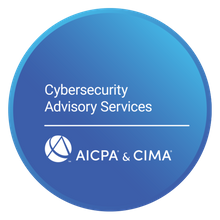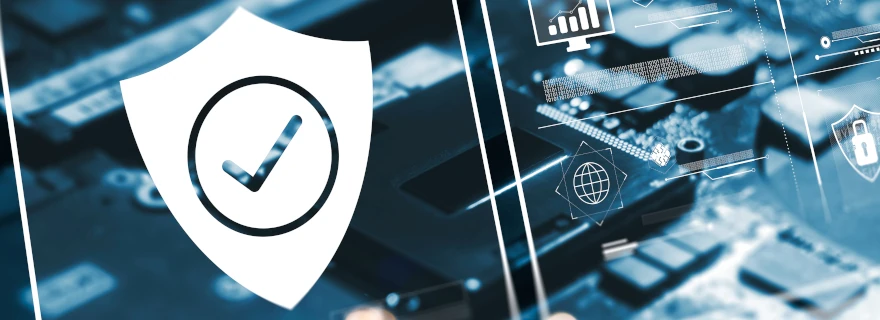Preventing Cyber Attacks: Employee Training for Tax Preparers
As tax preparation businesses increasingly rely on digital technology to store sensitive client information, the risk of cyber threats and data breaches also increases. Cybercriminals are constantly evolving their tactics and becoming more sophisticated, making it crucial for tax preparers to prioritize cybersecurity. Implementing strong security protocols and software is essential to safeguard client data. However, employee training on cybersecurity best practices is equally important. Employees who are not properly trained in cybersecurity can unknowingly put the business and its clients' sensitive information at risk. Therefore, providing adequate employee training is essential in maintaining the security of tax preparation businesses.
Employee training in cybersecurity for tax preparers is essential in preventing cyber attacks and data breaches that can result in financial loss and damage to the business's reputation. Cybersecurity training should be an integral part of any tax preparation business's security strategy. An effective training program should cover topics such as password management, phishing attacks, data encryption, and regular software updates. By investing in employee training, tax preparation businesses can better protect themselves and their clients from cyber threats, ensuring that sensitive financial data is kept safe and secure. By implementing these cybersecurity best practices, tax preparation businesses can demonstrate to their clients and stakeholders that they take data security seriously.
Why Employee Training is Crucial in Cybersecurity for Tax Preparers
In today's digital age, cyber attacks are a growing concern for businesses of all sizes, and tax preparation businesses are no exception. As the number of cyber attacks targeting tax preparers continues to rise, it is more important than ever to prioritize cybersecurity. Providing employees with cybersecurity training is an essential aspect of safeguarding sensitive client information and protecting your business against cyber threats.
The risk of a data breach or cyber attack is not limited to external threats such as hackers. It can also come from within the organization, such as human error or negligence. By providing employees with cybersecurity training, tax preparation businesses can equip their staff with the knowledge and skills needed to prevent and respond to cyber threats. Employees can learn how to identify potential vulnerabilities, such as weak passwords or phishing emails, and take proactive measures to prevent attacks.
Cybersecurity training can also help build a culture of security within the organization. By emphasizing the importance of cybersecurity and instilling good security habits among employees, businesses can create a more secure environment that promotes safe practices and helps prevent cyber attacks. Additionally, investing in cybersecurity training demonstrates to clients and stakeholders that your business takes data security seriously.
Employee training is crucial in cybersecurity for tax preparers. Providing employees with cybersecurity training can help prevent data breaches and cyber attacks, protect sensitive client information, and build a culture of security within the organization. By investing in employee training and implementing best practices for cybersecurity, tax preparation businesses can better protect themselves and their clients from cyber threats.
The Risks of Not Providing Adequate Cybersecurity Training to Employees
The consequences of a cyber attack can be devastating for businesses, including financial losses, reputational damage, and legal liabilities. Failing to provide adequate cybersecurity training to employees can significantly increase the risk of a data breach or cyber attack. Without proper training, employees may not be aware of the latest cyber threats or best practices, making them more susceptible to social engineering attacks such as phishing or pretexting.
Moreover, employees who lack cybersecurity training may unknowingly engage in risky behavior, such as using weak passwords or accessing sensitive data from unsecured networks or devices. These actions can create vulnerabilities that cybercriminals can exploit to gain access to sensitive client information or other valuable data.
The risks of not providing adequate cybersecurity training extend beyond the potential financial and reputational damage to the business. Tax preparers also have a legal obligation to protect their clients' information under IRS regulations. Failure to comply with these regulations can result in fines, penalties, and legal liabilities.
By providing adequate cybersecurity training to employees, tax preparation businesses can minimize the risks of a data breach or cyber attack. Employees can learn how to identify and respond to potential threats, follow established security protocols, and keep sensitive data secure. Investing in cybersecurity training can help safeguard your business against cyber threats and demonstrate your commitment to protecting your clients' data.
Remember, cybersecurity threats are constantly evolving, and it's essential to stay up to date on the latest best practices and technologies to protect your business. By making employee cybersecurity training a priority, you can safeguard your business against cyber threats and maintain the trust of your clients.
Key Elements of Cybersecurity Training for Tax Preparers
A comprehensive cybersecurity training program for tax preparers must be tailored to the unique needs of the business and its employees. The training should be designed to increase awareness of cybersecurity risks and empower employees to identify and respond to potential threats.
One of the most important elements of cybersecurity training is password management. Passwords are the first line of defense against cyber attacks, and employees must understand the importance of creating strong passwords and changing them regularly. This training should include best practices such as using a combination of upper and lower case letters, numbers, and special characters, and avoiding easily guessable passwords such as birthdays or pet names.
Another crucial topic to cover is identifying and avoiding phishing attempts. Phishing is one of the most common forms of cyber attack and can be difficult to detect. Employees should be trained to recognize suspicious emails, such as those that request personal or financial information or include links to unknown websites. They should also be instructed on how to report suspected phishing attempts to their IT department.
Social engineering attacks are another common tactic used by cybercriminals to gain access to sensitive information. Employees must be aware of the potential risks associated with these attacks and be trained to identify and respond appropriately to suspicious requests for information or access to systems.
Lastly, the training program should include safe browsing habits, such as avoiding unknown or untrusted websites, enabling ad-blockers, and ensuring that all software and security programs are up to date.
Incorporating these key elements into a comprehensive cybersecurity training program for tax preparers can help protect businesses and their clients from cyber threats and data breaches. By regularly updating and reinforcing the training program, businesses can ensure that their employees are equipped to handle evolving cybersecurity risks.
How to Design an Effective Cybersecurity Training Program for Tax Preparation Staff
It's important to establish clear goals and objectives for your cybersecurity training program, and to communicate these goals to your employees. This will help ensure that everyone is on the same page and understands what is expected of them. You should also consider incorporating real-life examples and case studies into your training program to help employees understand the potential consequences of cyber threats and the importance of following security protocols.
In addition to providing initial cybersecurity training for new employees, it's also important to offer ongoing training and refresher courses to ensure that everyone stays up-to-date on the latest threats and best practices. This can be done through regular training sessions, newsletters, and other forms of communication.
Finally, it's important to evaluate the effectiveness of your cybersecurity training program regularly. This can be done through employee feedback, testing and simulations, and monitoring of cybersecurity incidents. Based on this evaluation, you can make adjustments and improvements to your training program to ensure that it continues to meet the needs of your business and employees.
Designing an effective cybersecurity training program for tax preparation staff requires a tailored approach that addresses your business's specific risks and vulnerabilities. By establishing clear goals and objectives, providing interactive and engaging training, offering ongoing education, and regularly evaluating the effectiveness of your program, you can help ensure that your employees are equipped with the knowledge and skills necessary to protect your business from cyber threats.
Incorporating Ongoing Cybersecurity Training and Awareness into Your Business Culture
Incorporating ongoing cybersecurity training and awareness into your business culture is a crucial step in maintaining strong cybersecurity practices. Training should not be a one-time event; rather, it should be an ongoing process that is integrated into your business culture. To achieve this, it is essential to include cybersecurity awareness into your company's policies and procedures. Employees should be encouraged to report any suspicious activity or potential threats, and managers should be responsible for responding to these reports and mitigating the risks.
Ongoing training and awareness campaigns are an excellent way to keep cybersecurity top of mind for employees. Regularly scheduled training sessions can help reinforce the importance of cybersecurity best practices and provide updates on the latest cybersecurity threats and solutions. In addition, cybersecurity should be discussed during team meetings, and relevant articles and resources should be shared with employees to encourage a proactive and engaged cybersecurity culture. By incorporating ongoing training and awareness into your business culture, you can ensure that your employees are equipped to protect your business against cyber threats.
Measuring the Effectiveness of Your Cybersecurity Training Program for Tax Preparation Staff
Measuring the effectiveness of your cybersecurity training program is crucial to ensure that your employees are equipped to handle potential cyber threats. There are several ways to measure the impact of your training program.
First, you can assess the knowledge of your employees before and after the training. This can be done through quizzes or other methods of testing. By comparing the results, you can determine if the training has effectively increased employee knowledge on cybersecurity best practices.
Another way to measure the effectiveness of your training program is by monitoring security incidents and data breaches. If your employees are applying the knowledge and skills they learned during the training, you should see a decrease in incidents and breaches over time. On the other hand, if incidents continue to occur, it may indicate that your training program needs improvement.
Lastly, it is important to solicit feedback from your employees on the effectiveness of the training program. This can be done through surveys or focus groups. By gathering feedback, you can identify areas that need improvement and make necessary adjustments to the training program.
Incorporating these measurement methods into your cybersecurity training program will help you determine its effectiveness and ensure that your employees are adequately prepared to handle potential cyber threats.
The Role of Leadership in Promoting a Cybersecurity Culture in Tax Preparation Businesses
Effective cybersecurity practices start from the top. Leaders in tax preparation businesses should take a proactive role in promoting a culture of cybersecurity. This means modeling best practices and emphasizing the importance of cybersecurity to employees. Leaders should also encourage employees to report any potential threats or incidents and provide regular updates on the latest cybersecurity risks and best practices.
Leadership can also support cybersecurity efforts by providing the necessary resources and support for effective cybersecurity training programs. This includes investing in cybersecurity technologies, providing regular training opportunities for employees, and ensuring that employees have access to the tools and resources they need to keep your business secure.
Overall, promoting a culture of cybersecurity is essential for tax preparation businesses to protect themselves against cyber threats. By taking a proactive approach to cybersecurity and involving employees at all levels of the organization, businesses can create a strong defense against cyber attacks and ensure the security of their sensitive data and financial information.
Investing in Cybersecurity Training for Your Tax Preparation Business
In conclusion, the risks of cyber attacks and data breaches for tax preparation businesses are high, making employee cybersecurity training an essential investment. Cybersecurity threats are constantly evolving, and businesses must be prepared to address them. An effective cybersecurity training program should cover key topics such as password management, identifying phishing attempts, recognizing social engineering attacks, and safe browsing habits. Ongoing cybersecurity training and awareness campaigns should also be integrated into your business culture to keep employees informed and vigilant.
To ensure that your cybersecurity training program is effective, it's important to measure its impact through assessments, monitoring security incidents and data breaches, and soliciting feedback from employees. With this information, you can make necessary adjustments to your program and continue to improve your business's cybersecurity posture.
Ultimately, leadership plays a crucial role in promoting a culture of cybersecurity and modeling best practices for employees. By providing the necessary resources and support, leaders can ensure that their employees have access to the training and tools they need to protect your business and clients' sensitive information.
Investing in a comprehensive cybersecurity training program for your tax preparation business can save you from devastating consequences in the long run. By prioritizing cybersecurity, you can protect your business, your clients, and your reputation. Contact a specialist if you have any questions about what you can do to improve your teams security posture.






